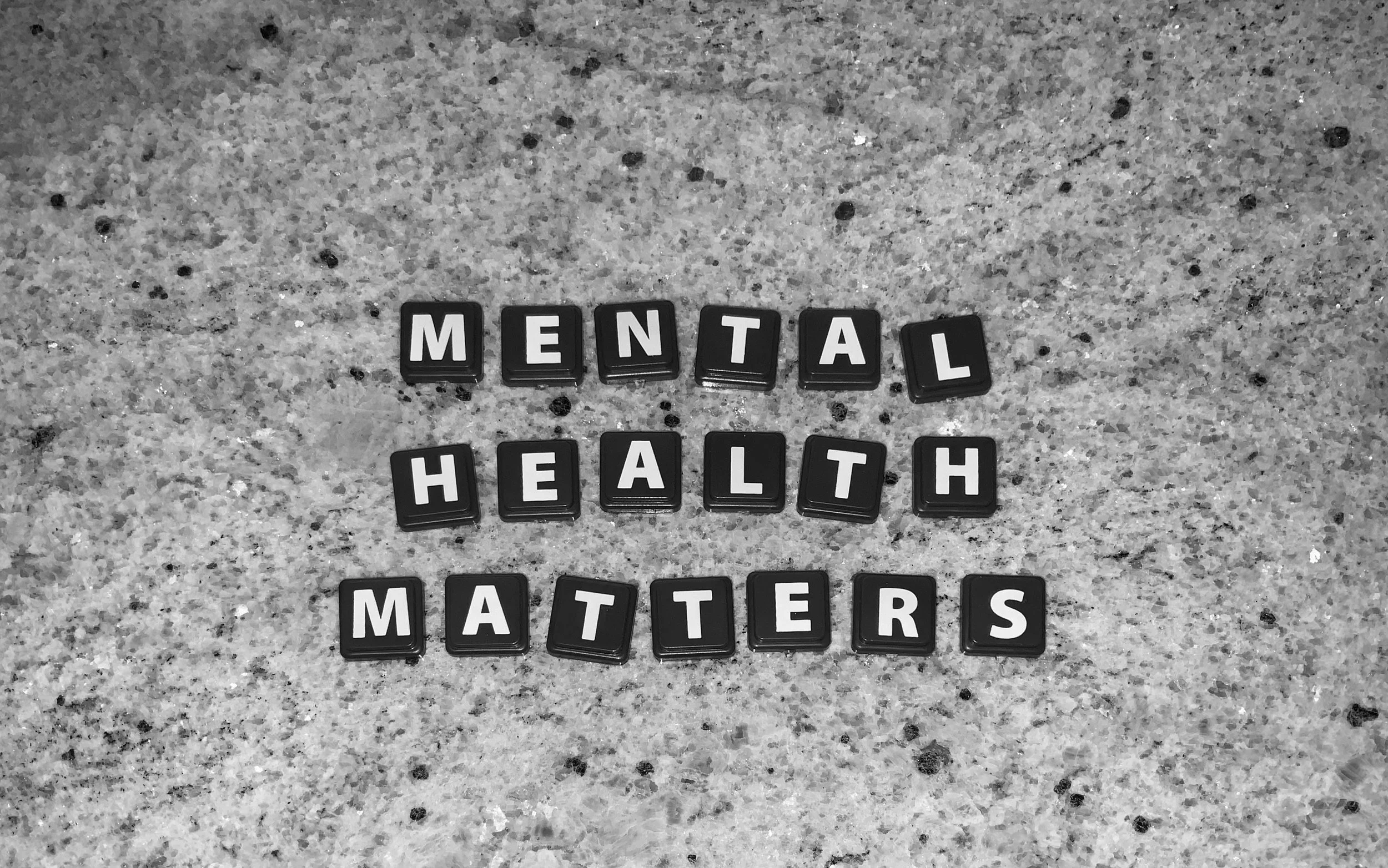Mental Health Awareness: Shifting from Stigma To Support
Guest Contributor: Deborah Parker Wong
Watching a loved one or friend succumb to a brain illness is devastating. When an individual’s life careens off course as the result of an unhealthy brain, they and not their illness often take the blame for the erratic and violent behaviors that can accompany a psychotic break.
Until I met Brandon Staglin, who at the time was being recognized as the nation’s leading consumer advocate for improving treatment and attitudes toward people who live with brain health conditions, I didn’t believe it was possible for someone to recover from schizophrenia. My interest in understanding the treatment that brought about his recovery was a result of my own life experiences.
More than forty years ago I watched as my mother’s life and, as a result, my family’s life was derailed by schizophrenia. She was institutionalized several times during my adolescence but her physicians and psychiatrists refused to discuss her treatment with me because I was a minor. With no adult relatives or spouse willing to help manage her care, she was not correctly diagnosed as schizophrenic or effectively treated for more than a decade.
As her illness progressed, those close to her had reason to fear for their lives as paranoia drove her beyond attempted suicide to the brink of committing murder. After her final hospitalization she returned to her hometown in rural Pennsylvania where she was able to live near relatives and eventually find appropriate treatment. While medication left her unable to work, she lived a peaceful, stable life until her natural death of a brain aneurism.
This scenario isn’t unique; it’s largely a product of the limited treatment options that were available at the time and the unwillingness of health care providers and society in general to treat both the patient and the family. Only in the last twenty years has treatment for schizophrenia and other conditions of the brain made significant progress.
In the below question-and-answer interview Brandon Staglin talks candidly about his work and life experiences living in recovery from schizophrenia.
Having recovered from schizophrenia, an illness that affects two million people living in the United States, Brandon Staglin is both a role model and an inspiration. He is the Board Director for the One Mind Institute, a non-profit dedicated to funding brain health research founded by his parents Shari and Garen Staglin in 1995, and Director of Marketing and Communications for the Staglin Family Vineyard.
1. What would you say to someone with a family or community member who has been diagnosed with schizophrenia to help them understand that it’s possible to manage and overcome the disorder?
I define recovery as the ability to transcend the confines (some physical, some conceptual) of patient life and to pursue the things that matter to you. It may or may not entail being symptom-free or treatment-free. I consider myself recovered although I still take medication and see my psychiatrist regularly.
Managing schizophrenia can be a challenge, but one that I have been able to meet and succeed at. One of the most helpful things I’ve done toward returning to wellness has been to consciously accept that I have a brain health condition that will stay with me for the foreseeable future. Now, managing my condition has become routine and consumes much less attention and concern. Focusing my energies on meaningful life pursuits has strongly developed my resilience and stability.
Other super-helpful factors in my recovery have been early and consistent access to quality psychiatric care, including medication; the loving support of my family, and my participation in a 1998 clinical trial for an experimental form of treatment called cognitive training.
Today, I work at a job that I care about, own a home, and am happily married for over eight years to my wife, Nancy. She and I take care of our dog, Cooper. Nancy and Cooper have taught me so much about unconditional love, which has been my life’s greatest reward. In addition to the medical, social, and motivational factors I describe above, I also make it a point to exercise every day, to eat mindfully, to meditate regularly, and to get a sensible amount of sleep each night. All these help to keep me steady and strong.
2. About two million people in the U.S. are diagnosed as schizophrenic while an estimated 5.5 million Americans of all ages have Alzheimer’s disease. Alzheimer’s seems to get the lion’s share of media attention and research dollars. What is One Mind doing to raise awareness and dispel stigma around schizophrenia?
One of our programs, Care Connect, operates a campaign called Strong365 (http://strong365.org) that educates youth about what psychosis is, about the availability of early care, and about the fact that seeking help is a sign of strength. This campaign provides digital ads to youth who search on the web for terms related to psychosis, which send them to the Strong365 website to learn more and to connect with peer chat or with a treatment center if desired.
In 2009, One Mind Institute co-founded Bring Change to Mind, a leading national organization raising awareness and fighting stigma around mental health conditions. I continue to speak, blog, and participate in interviews about my experience, which I hope educates many.
3. What is the One Mind Institute is doing in terms of research towards finding a cure?
One Mind operates several programs to find better treatments, preventions and cures for schizophrenia and other brain disorders. Focusing on schizophrenia, our most important work has been in the realm of early detection and intervention. As with any other disease, evidence indicates that the earlier someone at risk for (or newly experiencing) psychosis can access treatment, the better their potential for recovery. Since the early 2000s, One Mind Institute has seed-funded and supported the research of the North American Prodrome Longitudinal Study (NAPLS), a nine-university consortium investigating the means to detect and treat psychosis even before a first episode occurs.
Today, I am co-leading a program of One Mind to form a learning healthcare network among community early psychosis treatment centers throughout California, with the intent to enable this network to participate in similar collaborative research. It is my hope that we can develop a way for this network to pool their data with that of the NAPLS to make statistically significant breakthroughs faster, for validate ways to prevent schizophrenia and other serious mental illnesses on a societal scale.
4. You’ve written about the National Institute for Mental Health’s RAISE project. Have you benefited from this type of early intervention and holistic treatment?
The RAISE study’s discoveries have formed the foundation for federal funding that has enabled over 100 more early psychosis clinics to open nationwide, which is awesome for public health. During my first episode in 1990, RAISE-model treatment (called Coordinated Specialty Care, or CSC) was not generally used for schizophrenia. However, with the help of my family, I engaged in a comprehensive care “program” of our own invention which combined medical treatment, volunteering (at the Oakland Zoo and the Marine Mammal Center in Sausalito) and continuing education (auditing classes at UC Berkeley). This combination of traditional treatment with community involvement and responsibility provided me with weekly structure, and kept me learning and growing as I stabilized. In many respects, this combination was similar to RAISE treatment.
5. In a recent study of genetic factors that put people at risk of developing mental illnesses, scientists have found a new gene linked to psychosis. You’ve described this as “following the pathways” research. Can you tell us more?
Studies like this one are important in that they can provide clues to the biological processes that can lead to schizophrenia. Once scientists know of a gene or network of genes that contributes robustly to risk for the disease, as in this family, they can investigate the biological pathways that develop from the activity of these genes and that can bring on the symptoms, and from this knowledge, find biological targets for the development of more focused treatments.
This “following the pathways” type of research has recently started to succeed. Steven McCarroll, of the Broad Institute at Harvard and MIT, spoke at our 2016 Music Festival about how his lab elucidated the biological mechanism behind how a specific mutation in the C4 gene can strongly increase risk for schizophrenia. This was tremendously exciting news.
In a very personal expression of hope and inspiration, Brandon Staglin has written and publicly performed an original song titled “Horizons Left to Chase” that explores the possibilities that exist despite having a schizophrenia diagnosis. He encourages everyone to watch the performance on One Mind Institute’s YouTube Channel.
Deborah Parker Wong, DWSET is Global Wine Editor for SOMM Journal. She teaches wine through the Wine & Spirit Education Trust and at several Bay Area colleges. Find her work archived online at www.deborahparkerwong.com
What We're Reading:
There's no shortage of wine stories and media inundating our IN Boxes. Here's what has piqued our interest this week.
Four Ways to Calm Your Mind in Stressful Times – GreaterGoodScience.com
Stress is not something meant to drive the body 24/7 so here’s four key tips for how to go from frazzled to fine.
French Wine Organizations Rejects Dry January – Meininger’s Wine Business International
“After French wine groups heard a rumour that the French Minister for Health intended to introduce Dry January to France, they were swift to react. Sophie Kevany reports.”
Meet the Community!
Our community is only as strong as the company we keep, and here we meet some of the folks who make our profession so dynamic.
Waldemar Albrecht-Luna, Wine Specialist, The Spanish Table, San Francisco (USA)
Years in Industry:
I am a recent convert to wine (1.5 years). Although I have loved all things food ever since I can remember. I have been a Fromager (Cheese geek) of some reknown (although some might argue the level of recognition) for decades. My passion for wine was cemented as a teenager when my father introduced me to Chinon and Borgueil wines, which -till this day- I still adore. It is incredible that after a career in cheese , I have been offered the opportunity to learn wine. I am enamored, humbled and excited about the varietals, the terroir, the history and the vibrancy of wines that I discover on a daily basis. It is culture encapsulated in a bottle. I am studying to become a sommelier but I look toward the opportunity to work as a vigneron, which as chance may have it, will be at Clos Saron next February.
My Biggest Challenges to Wellness:
My life motto for many years has been “creating uproar wherever I go” — need I say more?. Frankly, I am all in or nothing — passionate, irreverent, brash and verbose, but as I age and start to settle down, it is important to think of the bigger picture ”— my small family, my adored partner Peter and our son Luke the dog. Being new in wine and with my voracious, obsessive personality, it is important to find a balance with drinking and establishing patterns that will lead to a healthy, stable life.
How I Keep It To Together To Stay Well:
Ha! It is a constant struggle, visiting a therapist (Kirk is the best) on a weekly basis has been a godsend to my life. Also my athletic endeavors. I was a track athlete for years ( I ran the 5 and 10k ) and an aspiring tennis player. These days, I play tennis as much as I can. I find the athletic and mental acumen that is required to pin down your opponent keeps you earnest, and a fantastic meal at home with my boys and a raging bottle of Northern Rhone Syrah makes my life complete.
You can connect with Waldemar on Instagram, Facebook, and LinkedIn .
Let’s Meet Up!
As work life has it, we are traveling over the next few months and would love to see you!
Attendee at ProWine China in Shanghai, November 12 to 14 (Cathy)
Presenters at the Unified Wine & Grape Symposium in Sacramento, February 4 to 6 (Beck and Cathy)
Presenter at the Vancouver International Wine Festival, February 25 to 29 (Cathy)
Attendee at ProWein in Düsseldorf, March 15 to 17 (Cathy)
Presenter at the Future Wine Expo in Santa Rosa, May 12 and 13 (Cathy)
Drop a line to rebecca@abalancedglass.com or cathy@enolytics.com if you are interested in getting together for practice, a chat or a great glass together.







